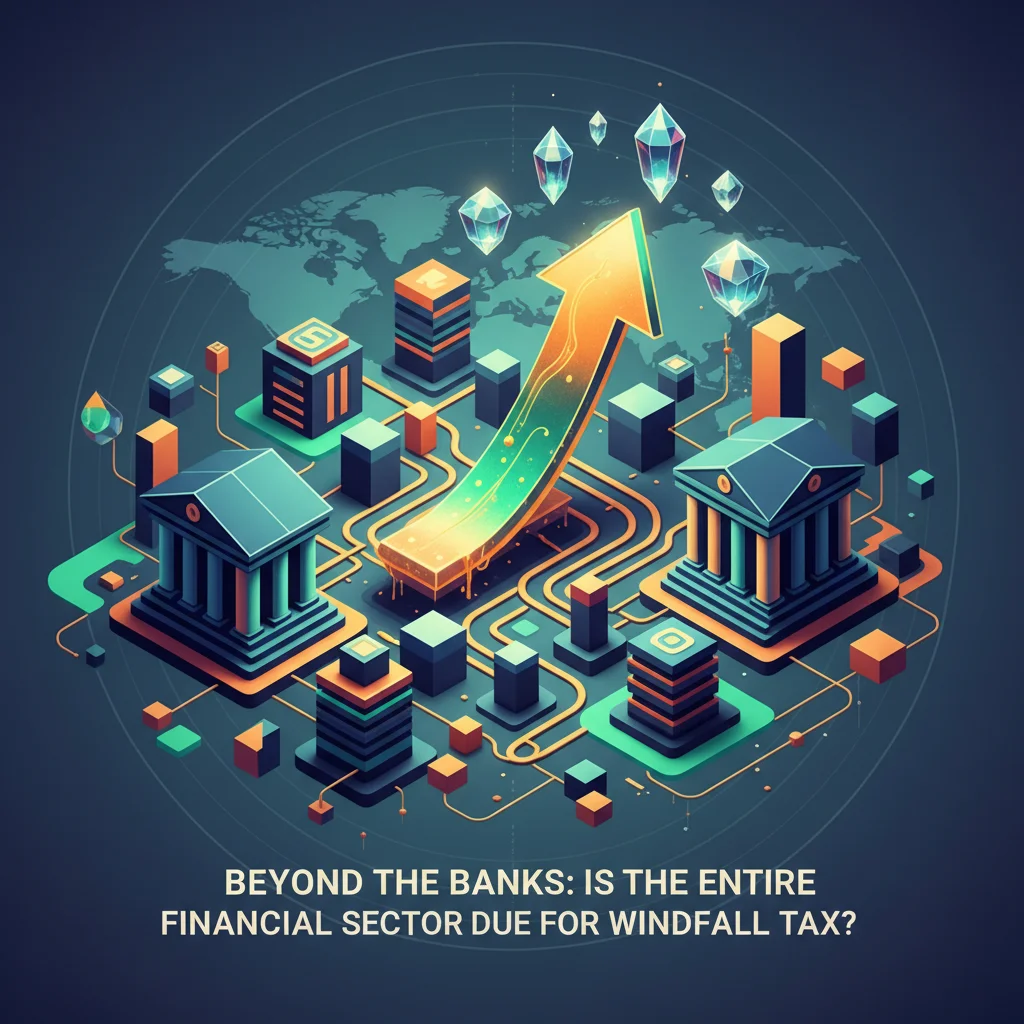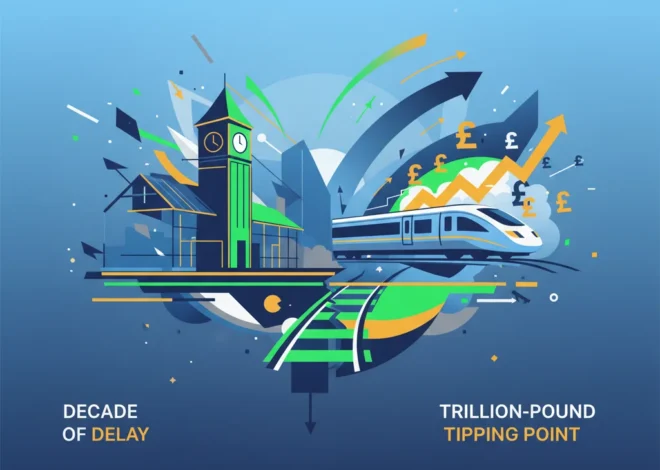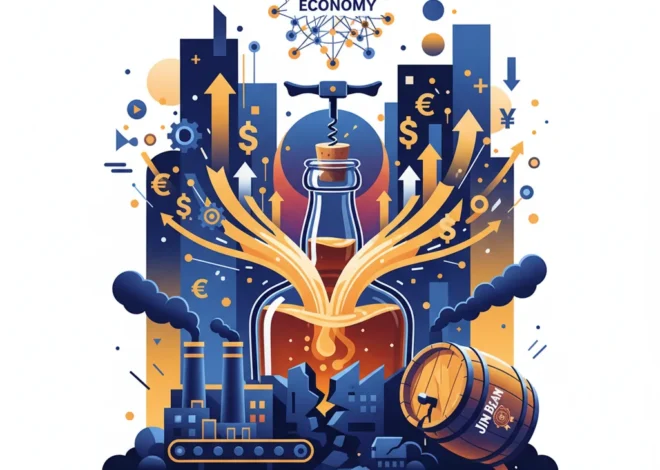
Beyond the Banks: Is the Entire Financial Sector Due for a Windfall Tax?
The debate over windfall taxes is once again echoing through the halls of finance and government. Typically, the spotlight falls squarely on big banks, whose profits have swelled in an era of rising interest rates. But what if that focus is too narrow? A provocative letter to the Financial Times from Professor Alan Tait of Cambridge raises a crucial question: if we’re considering a windfall levy, why stop at traditional banking? Why not look at the entire, sprawling financial sector?
This simple question unpacks a complex reality. The modern world of finance is a vast ecosystem that extends far beyond high-street lenders. It’s a dynamic landscape of asset managers, private equity giants, insurance behemoths, and disruptive fintech innovators. As the global economy navigates turbulence, many of these players have not just survived but thrived. This post delves into the compelling argument for a broader financial windfall tax, exploring who it would impact, the potential economic consequences, and the immense challenges of turning such a policy into a reality.
The Anatomy of a “Windfall”
Before we explore broadening its scope, it’s essential to understand what a windfall tax is. At its core, a windfall tax is a one-off levy imposed on a company or industry that has experienced a sudden and significant increase in profits due to external factors they did not directly create. Think of a geopolitical event that causes oil prices to skyrocket, leading to record profits for energy companies. Governments sometimes argue that a portion of these “unearned” profits should be returned to the public purse to fund services or provide relief to those negatively affected by the same external factors.
The UK has a history with such measures. The most famous example is the tax levied on North Sea oil and gas producers in the 1980s. More recently, the idea resurfaced with the energy crisis, leading to the Energy Profits Levy. The logic is one of fairness and fiscal necessity. When one sector benefits immensely from macroeconomic conditions—like high inflation or interest rate hikes—that are causing hardship for households and other businesses, a windfall tax is seen as a rebalancing mechanism. The current debate around banking profits fits this historical pattern perfectly.
The Trillion-Dollar Question: How a Nuclear Submarine Deal Could Reshape South Korea's Economy
Why Stop at Banks? The Modern Financial Universe
Professor Tait’s argument is that the current focus on banks is myopic. The financial services industry of the 21st century is a multi-trillion dollar beast with many heads. While banks profit from higher net interest margins, other players are capitalizing on market volatility, asset growth, and technological disruption.
Let’s consider the other titans of the financial world:
- Asset Managers: Firms like BlackRock and Schroders manage trillions of dollars in assets. Their revenue is often tied to the value of assets under management (AUM) and performance fees. A volatile stock market can increase trading volumes and demand for active management, boosting their bottom line.
- Private Equity & Hedge Funds: These are the power players of alternative investing. They thrive on complex deals, leverage, and market inefficiencies. Their success is often disconnected from the general economic health of the nation, yet their profits can be astronomical.
- Insurance Companies: While their business model is about managing risk, insurers are also massive institutional investors. Rising interest rates can significantly boost the returns on their vast bond portfolios, leading to substantial profits.
- Fintech & Financial Technology: This is the new frontier. Companies specializing in everything from payment processing to blockchain-based finance have seen explosive growth. They are reshaping the very architecture of finance and, in many cases, enjoying high valuations and rapid revenue growth.
To put this into perspective, let’s look at the relative scale and profitability across the sector. While precise like-for-like comparisons are difficult, industry reports provide a clear picture of a sector enjoying widespread success.
| Financial Sub-Sector | Key Profit Drivers | Recent Performance Trend |
|---|---|---|
| Commercial Banking | Net Interest Margin (NIM) from higher interest rates | Strong profit growth since central bank rate hikes began |
| Asset Management | Assets Under Management (AUM) fees, performance fees | Generally positive, benefiting from long-term market growth despite volatility |
| Private Equity | Carried interest, management fees, successful exits (IPOs/sales) | Record-breaking fundraising and deal activity in recent years |
| Fintech & Payments | Transaction volumes, platform fees, user growth | Explosive growth, though some recent valuation corrections |
This table illustrates that profitability isn’t confined to one corner of the market. A wide array of financial players are benefiting from the current economic landscape, which strengthens the argument that a narrowly focused tax on banks would be inequitable and miss the bigger picture.
The Case For: Fairness, Fiscal Need, and Market Stability
Proponents of a wider windfall tax build their case on three main pillars.
- Economic Fairness: The most powerful argument is ethical. The same interest rate hikes designed to curb inflation—and which squeeze household budgets through higher mortgage payments and loan costs—are directly boosting the profitability of the financial sector. According to the Office for National Statistics, UK government debt was 97.7% of GDP at the end of December 2023. A tax that redistributes some of the financial sector’s outsized gains could be seen as a way to rebalance the scales and fund public services under strain.
- Fiscal Imperative: Governments worldwide are grappling with high debt levels post-pandemic. A one-off levy on the entire financial sector could generate substantial revenue, providing a much-needed fiscal injection without resorting to broader, more politically painful tax increases on income or consumption.
- Curbing Excessive Speculation: A well-designed tax could potentially disincentivize some of the more speculative, short-term trading activities that contribute little to the real economy but can create significant systemic risk. By targeting profits above a “normal” baseline, it might encourage a greater focus on long-term, sustainable investing.
From a Reader's Plea to a Financial Mandate: The Economics of Climate Inaction
The Case Against: The Danger of Unintended Consequences
However, the arguments against such a policy are equally, if not more, formidable. Critics warn of a cascade of negative effects that could harm the very economy the tax is intended to help.
- Defining and Measuring “Windfall”: This is the Achilles’ heel of the proposal. How do you establish a “normal” level of profit for diverse businesses like a high-frequency trading firm, a venture capital fund backing blockchain startups, or a centuries-old insurance company? It’s an administrative nightmare that could lead to endless legal challenges and loopholes.
- Capital Flight and Competitiveness: The world of high finance is notoriously mobile. A punitive tax levied in the UK could incentivize firms to relocate headquarters, capital, and talent to more favorable jurisdictions like New York, Singapore, or Dublin. London’s standing as a global financial hub is a major economic asset. A recent Z/Yen report shows that while London remains competitive, its lead is fragile (source). An exodus of financial firms would mean a loss of high-paying jobs and a long-term reduction in the UK’s overall tax base, potentially costing more than the windfall tax would raise.
- Stifling Innovation and Investment: The financial technology sector is a major UK success story. These companies are often high-risk, high-reward ventures that require significant upfront investment. The prospect of a windfall tax could deter venture capital, chilling innovation and making it harder for UK-based fintech firms to compete globally. Why invest in a risky startup if a large portion of the potential upside will be taxed away?
What This Means for Investors and Business Leaders
For investors and business leaders, the mere discussion of such a tax introduces a new layer of political risk into the equation. If you are investing in the financial sector, your analysis can no longer be limited to balance sheets and market trends; you must now factor in the shifting tides of public opinion and policy.
This uncertainty could lead to a “political risk premium” being priced into UK financial stocks, potentially depressing their valuations compared to international peers. For business leaders within the sector, it’s a clear signal that they need to be on the front foot, demonstrating their value to the wider economy and society, lest politicians decide to do it for them through taxation.
The Quantum Leap: Why Today's Financial Markets Are on the Brink of a Sci-Fi Revolution
Conclusion: A Necessary Conversation
Professor Tait’s suggestion to look beyond the banks is more than just an academic exercise; it forces a much-needed conversation about the structure of our modern economy. The financial sector is a powerful engine for growth and innovation, but its relationship with the “real world” can often feel disconnected, especially during times of economic hardship.
While a broad-based financial windfall tax is fraught with practical difficulties and serious risks to economic competitiveness, the sentiment behind it cannot be ignored. It speaks to a deep-seated public concern about fairness and the social contract between a nation and its most profitable industry. Whether or not a tax ever materializes, this debate serves as a crucial reminder to the entire financial world—from the oldest banking institutions to the newest blockchain disruptors—that their license to operate is not just financial, but social and political as well.


